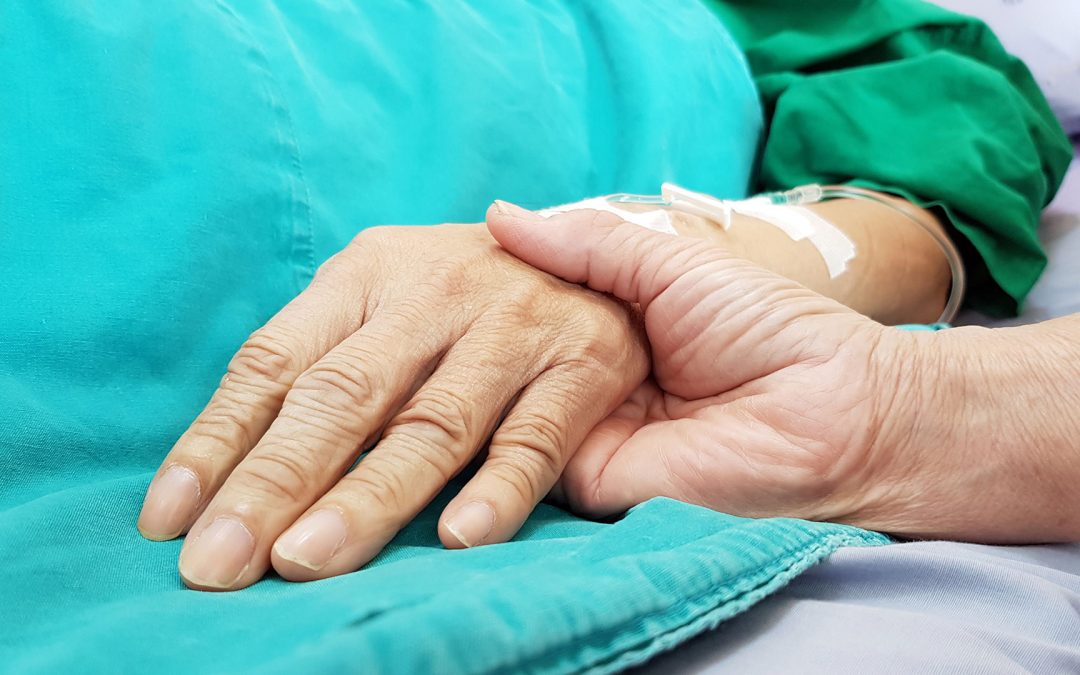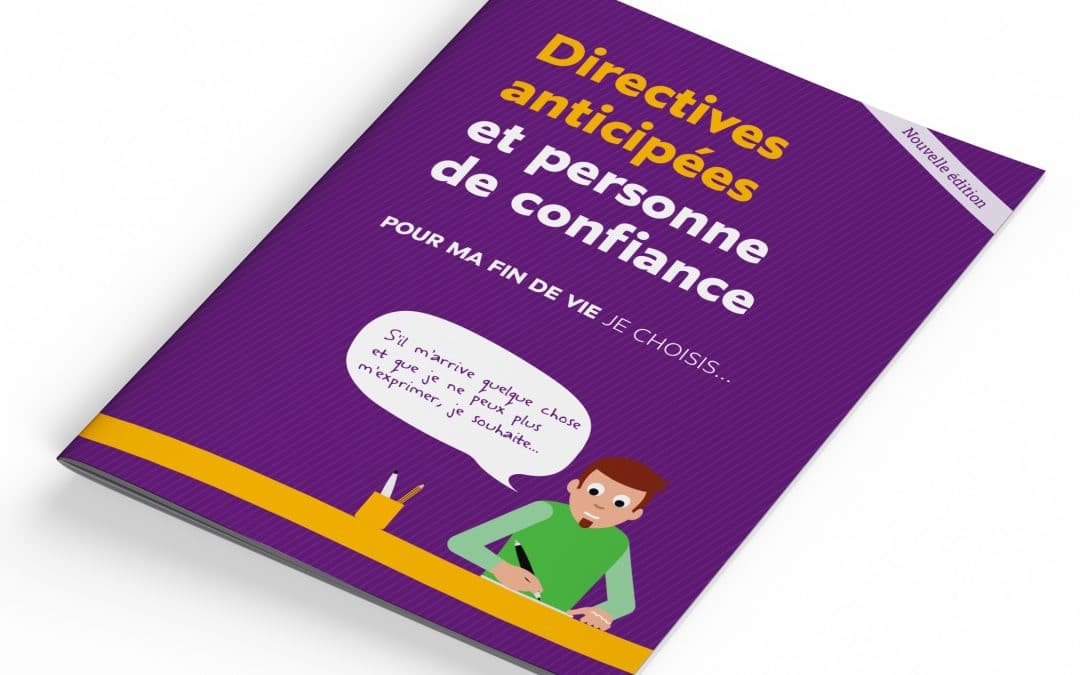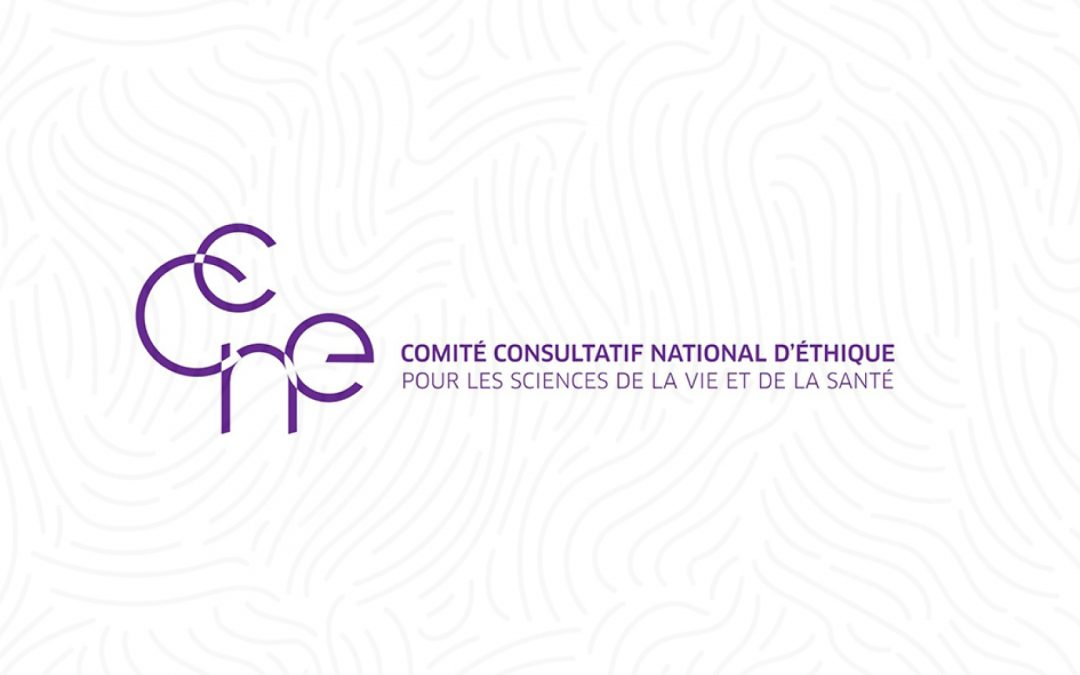Following the publication in September of a notice opening the door to the legalisation of euthanasia and assisted suicide, the CCNE (Comité Consultatif National d’Ethique) has just issued a new notice, number 140, headed “Rethinking Healthcare System Based on Ethics”. Passed by unanimous vote by the members present at the plenary session on 20th October 2022, the notice is intended to lay down firm markers to face up to the deep crisis being experienced by the French healthcare system.
The pandemic, a detonator for a pre-existing crisis
The sub-heading of the notice “Lessons from the sanitary and hospital crisis, diagnosis and prospects” illustrates their approach. The sanitary crisis linked to the COVID 19 pandemic acted as a large scale indicator of tensions, and accelerator of the trends, weighing down the care system, and more broadly the health system in France.
The CCNE defines both terms at the start of their notice. The care system includes all the organisation and coordination aspects of medicine. The health system includes the care system in “a broad perspective, extending to the social aspects and the determining factors for health“.
The crisis in the care system has been widely documented and analysed. The official reports are ever increasing, such as the Senate report “Hospitals: Leaving A & E“. It is also among the main concerns for the French people, who have seen the dramatic illustration through the strike action this year in hospital A & E departments.
The health system is “impaired” according to the expression used by the CCNE. Whilst recognising the remarkable work performed by healthcare workers, in particular during the pandemic”, the CCNE delivered its diagnosis of a “systemic” and “far-reaching“ crisis.
The factors contributing to the crisis according to the CCNE
The document lists a number of factors which have contributed to the crisis. The CCNE thinking is in line with that of many analysts. Life expectancy in France has increased “significantly” over the last 30 years, resulting in an increase in needs. The ageing of the population moreover brings with it specific additional needs, linked for example to chronic disease, as indicated in the yearly DREES report. Medical demography has been moving in the opposite direction. Thus, between 1977 and 1997, the number of vacancies for medical studies (numerus clausus) fell from 8671 to 3576. A recovery programme was introduced to return to the 1977 level in 2018 (8205 places). This evolution has gone hand in hand with an approach including a focus on cost control. The CCNE considers that “this new form of management has attempted to apply to healthcare the concepts and methods adopted by industry (the “hospital-company” concept). This has resulted in a transformation of the health function to the benefit of a purely economic logic based on incitements and indicators…“.
This approach, with for example charging per treatment, combined with the undeniable progress achieved in medical and pharmaceutical techniques, has favoured a healthcare culture considered as treatment for cure at the expense of an approach incorporating closer relationships with patients, whereas it is a central factor in the motivation of many healthcare workers in their choice of career. The time spent by healthcare workers with their patients has been compressed in the technical times at the expense of attentive listening. The partitioning within the healthcare system: community medicine versus hospitals, medical versus administrative staff, also contributes to inefficiencies.
The consequences of the crisis
First consequence:
The inequalities of access which are deepening, to the detriment of the most vulnerable, inequalities which the Covid 19 crisis illustrated quite dramatically.
Second consequence:
A “crisis of trust” by both the public and healthcare staff with respect to the authorities, which trust had already been severely tested by a series of scandals (contaminated blood, Mediator etc.), accentuated by the centralised management of the sanitary crisis.
Third consequence:
Situations of suffering for all the players in the healthcare system. Suffering of patients unable to access care, of not having their needs considered. Suffering by healthcare workers, extending to a loss of direction and disillusionment resulting in psychological suffering. The CCNE reported that “The deterioration in working conditions in hospitals is the cause of ethical suffering resulting in confrontation between healthcare workers and other professionals in the sector on ethical dilemmas which are often stifled“. Ethical suffering “appears when the healthcare professionals are forced to act against their social, professional or personal values, without being able to express themselves openly on such tensions and the feelings which they generate.”
The CCNE proposals
All these observations and warning signals have led the CCNE to launch an appeal to “reposition ethics at the centre of healthcare”. Starting from the premise that “access for all to healthcare is the strongest indication of national solidarity opposing the uncertainties of disease, dependency and malaise“, the CCNE is proposing 4 themes.
First theme: Integrate and deploy an ethical culture in professional practices.
This theme includes, for example encouraging a culture of dialogue between carers, avoiding to confine ethical matters to committees, the training and appreciation of ethical thinking within the teams.
Second theme: guarantee social justice in access to healthcare.
France is among the nations where the healthcare costs for households are the lowest, but this general statement overshadows many disparities. The CCNE states that “The economic model must be thoroughly reviewed to include all activities and services and taking into account the specific nature of territories“. Recognised as being “The true backbone of the healthcare system“, the public health system must be the subject to extreme vigilance.
Third theme: support the notion of an ethical respect for the parties concerned.
Behind these words, the CCNE is proposing materially that the time assigned to healthcare/patient relations be upgraded, and that healthcare workers be better rewarded both financially and in their quality of life at work. The democracy health organisations represent a piece of the puzzle which must not be neglected, according to the CCNE.
Fourth theme: regain trust by sharing knowledge and educating on health issues.
Although the trust between the public and healthcare workers remains high despite the tensions in the system, the CCNE repeats its proposal from its notice 137 for the “Implementation of a convention for ethical public health, which could be established in coordination with the national or regional public health organisations and with regional ethical thinking platforms“.
In conclusion
The CCNE is calling for an “in-depth review” in 3 directions:
ensure equal access to the health system, including treatments,
re-establish a sense of purpose for healthcare workers,
listen to all the players involved in the system.
The “French model which until now has taken into account these high ethical values is now undermined” as stated by the CCNE.
Heavy trends are currently penetrating society which are upsetting the “French model”: The primacy of individual desires, the merchandising of living matter, the demande for performance.
As a recent protagonist for an about-turn on the question of euthanasia and assisted suicide in the name of individual autonomy, can the Committee call for solidarity whilst prioritising such autonomy in its recent decisions ?
![[CP] – Abortion in the Constitution: A Confiscated Debate Far from Reality](https://www.alliancevita.org/wp-content/uploads/2022/07/avortement-constitution-décryptage-1080x675.jpg)



